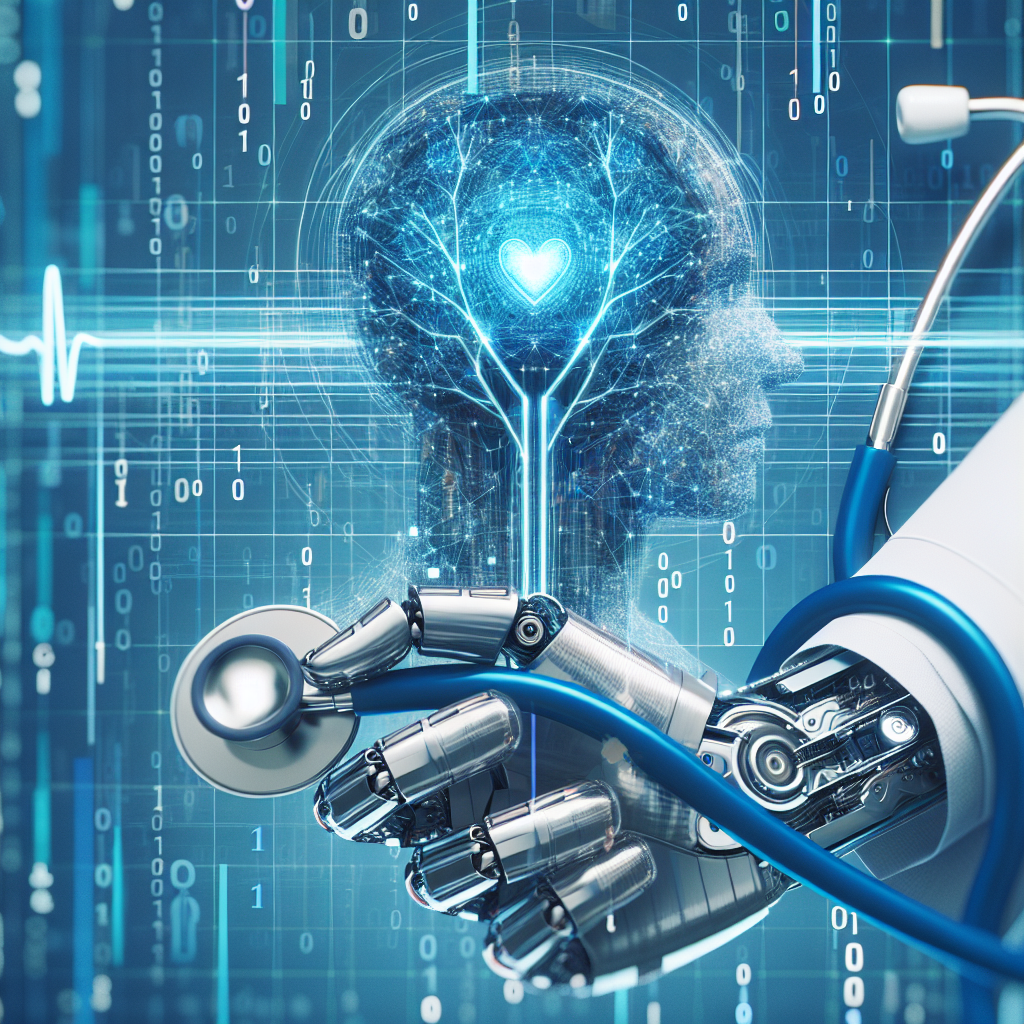The Potential of AI and Machine Learning in Healthcare
In recent years, the healthcare industry has seen a significant increase in the use of artificial intelligence (AI) and machine learning technologies. These advanced technologies have the potential to revolutionize the way healthcare is delivered, from improving diagnosis and treatment to optimizing hospital operations and reducing costs.
AI and machine learning algorithms have the ability to analyze large amounts of data quickly and efficiently, allowing healthcare providers to make more accurate and timely decisions. By leveraging these technologies, healthcare organizations can improve patient outcomes, increase efficiency, and reduce medical errors.
One of the key areas where AI and machine learning are making a significant impact is in medical imaging. These technologies can analyze images such as X-rays, MRIs, and CT scans to detect anomalies and assist radiologists in making more accurate diagnoses. By using AI to analyze medical images, healthcare providers can detect diseases such as cancer at an earlier stage, leading to better outcomes for patients.
Another area where AI and machine learning are being used is in predictive analytics. These technologies can analyze patient data to predict which patients are at risk for developing certain conditions, allowing healthcare providers to intervene early and prevent disease progression. By using predictive analytics, healthcare organizations can reduce hospital readmissions, improve patient outcomes, and lower healthcare costs.
AI and machine learning are also being used to personalize treatment plans for patients. By analyzing a patient’s medical history, genetic information, and other relevant data, healthcare providers can develop customized treatment plans that are tailored to the individual patient’s needs. This personalized approach to healthcare can lead to better outcomes and higher patient satisfaction.
In addition to improving patient care, AI and machine learning can also help healthcare organizations optimize their operations. These technologies can analyze data to identify inefficiencies in processes, allocate resources more effectively, and improve the overall quality of care. By using AI and machine learning to optimize operations, healthcare organizations can reduce costs, increase efficiency, and improve patient outcomes.
Overall, the potential of AI and machine learning in healthcare is vast. These technologies have the ability to transform the way healthcare is delivered, from improving diagnosis and treatment to optimizing hospital operations and reducing costs. By leveraging AI and machine learning, healthcare organizations can improve patient outcomes, increase efficiency, and reduce medical errors.
FAQs
Q: How does AI and machine learning improve patient outcomes in healthcare?
A: AI and machine learning technologies can analyze large amounts of data quickly and efficiently, allowing healthcare providers to make more accurate and timely decisions. By leveraging these technologies, healthcare organizations can improve patient outcomes by detecting diseases at an earlier stage, predicting which patients are at risk for developing certain conditions, and developing personalized treatment plans for patients.
Q: How are AI and machine learning being used in medical imaging?
A: AI and machine learning algorithms can analyze medical images such as X-rays, MRIs, and CT scans to detect anomalies and assist radiologists in making more accurate diagnoses. By using AI to analyze medical images, healthcare providers can detect diseases such as cancer at an earlier stage, leading to better outcomes for patients.
Q: How can AI and machine learning help healthcare organizations optimize their operations?
A: AI and machine learning technologies can analyze data to identify inefficiencies in processes, allocate resources more effectively, and improve the overall quality of care. By using AI and machine learning to optimize operations, healthcare organizations can reduce costs, increase efficiency, and improve patient outcomes.

